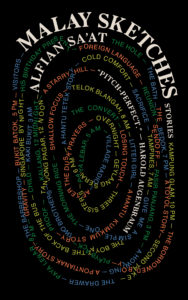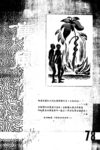Alfian Sa’at’s luminously observant collection of stories, Malay Sketches, was first published in Singapore in 2012, but it appears in the United States for the first time as the inaugural title of Gaudy Boy, a new independent literary press that publishes Asian voices from both America and Asia. Alfian deliberately echoes the 1895 writings of the same title by Frank Swettenham, a colonial governor of what was then called the Straits Settlements; Alfian takes Swettenham’s purported project of documenting daily life and tackles it earnestly, abandoning the 19th-century colonial gaze and replacing it with the humility and honesty of a contemporary observer keen on recording otherwise unuttered, private thoughts and sensibilities of Singapore’s Malay-Muslim community.
Alfian succeeds in his project: the dozens of lives populating the slim but lively volume seem to exist beyond the boundaries of the short (often very short) stories that document single flashes of recognition, interaction, or introspection. Reading the stories one after the other offers a sense of privileged intimacy, as if Alfian pulls us ever so quietly into the unaccounted-for moments that fill in days and weeks as they pass by, or the no-man’s-land that forms a gulf between parents and children, lovers past and present, or strangers sitting side by side on the bus. From those empty spaces we can witness what so often goes unrecorded or unspoken, what each of the unsuspecting subjects Alfian invites us to observe thinks and feels when no one — not even the self — is watching.
Some of the most arresting stories in the collection are the briefest. In “Geylang Serai, 6 AM,” the unnamed woman or girl removing a block of raw noodles from its packaging is so convincing in her private impulse to sculpt the noodles into a face. How often do we all have those silent impulses that go unsaid and, later, unremembered? Just when this unnamed “she” seems to have grown as real as she can, Alfian gives us another figure, who has been there all along: her father chopping chilies. Suddenly, we see a family — a life, really — expanding exponentially around this one private moment.
“Tampines, 7 AM,” another of the collection’s briefest stories, captures the fragile moment when we realize that the possibilities we had clung to so ardently, just moments ago, will not come to fruition. Alfian beckons us to observe a group of young adults returning from a camping trip. We become the unassuming commuter watching the candid interactions unfolding in front of us, entering the minds and hearts of the anonymous lives we observe, as we all do in our imaginations when we people-watch on the subway or in another crowded public space. One of the young men watches one of the young women get off at her stop; earlier, he placed a love note in a zippered pocket of her backpack. Even as he painfully wishes she will read his note, he is aware that he will likely get no answer and will never know if the silence is a “no” or an unlucky missed opportunity, a note resting silently and unfound in the depths of her backpack. He knows, too, in that moment, that “already the waves have begun to erase the charred remains” not of their briefest of shared lives, but of “whatever had lent them those orange and haloed masks,” the campsite firelight that lit their lives with possibility, just once.
Alfian deftly and judiciously allows the real, recognizable, utterly believable details of his stories to become metaphors. The result is a certain immediacy and accuracy unspoiled by the gloss of rosy-tinted or overwrought figurative language. In “Bedok, 7 PM,” for instance, the too-full buses passing the stop where three women are waiting become searingly fitting emblems of opportunities both missed and hoped-for, all in the story’s last sentence. One doesn’t expect a story only two paragraphs long to deliver a punch to the gut, but when it happens — when those buses become everything — of course it had to: the buses have been passing the whole time.
Religious faith in all its power and frailty is an integral part of the lives Alfian captures. “Paya Lebar, 5 AM” is a vivid, honest rendering of prayer, its questions, and its attempts to imagine the unimaginable: “ . . . Everything feels closer in the dark, including God. Maybe Paradise is also a place of darkness . . . ” the young man ponders, as “God’s blessings are received like a spider-filament of light, pouring into the concavity of his palms.” Any reader can recognize their proximity to something larger than themselves, the simultaneous awe and comfort inherent in “receiving” a piece of that entity, be it God or the universe or some sense of common humanity. The “concavity” of the young man’s palms receiving “blessings” seems to echo a line from the collection’s first story, “The Convert”: the eponymous man, months into the marriage for which he changed the formalities of his faith, lies awake while his wife “stir[s] and curl[s] her back to rest in the concavity of his body.” The echoing “concavity” of these two men’s receiving bodies suggests, in its quiet way, the private divinity present in both prayer and love. And yet, even as he renders faith so convincingly, Alfian also asks us to consider where faith isn’t enough: in “A Hantu Tetek Story,” he gives us the ghostlike masses in a woman’s mammogram, “immune to the powers of sunlight and prayer,” haunting markers of the moments when faith fails us.
Alfian lets us see what parents don’t tell their children: in “His Birthday Present,” carefully observed knowledge of a young son’s gait as he walks down the hallway, a memory of that same son turning around to smile, a mother’s stifled sob; and what children don’t tell their parents: the adult son’s fear, in “A Toyol Story,” of his father’s approaching senility, and the son’s lies that accompany the father gently as he dips further and further into confusion. Alfian also lets us see those left behind: in “Sacrifice,” a drug addict named Jasper moves to the UK to live with his parents, checks himself into rehab, and ends up with a stable career, all prompted by his girlfriend’s arrest. Suhaili, the girlfriend, had only taken drugs after meeting Jasper, in an effort to help him manage his addiction through solidarity and her own overestimated sense of discipline and willpower. Instead of Jasper’s story, Alfian gives us Suhaili’s, the post-incarceration detritus left behind him, of which he is entirely unaware. Then, in a devastating turn, Alfian tells us what Suhaili cannot know: that Jasper has gotten out, that he thinks her an “angel” sent to turn his life around. “See how she becomes so instrumental in the life of another?” Alfian seems to ask us, demanding our recognition not only that everyone we view as instrumental has a life, but also that our own lives are merely instrumental to other people.
Alfian’s characters are unknowingly astute, more astute, in fact, for being entirely unguarded and uncalculating in their perceptions. The narrator of “Losing Touch,” for instance, offers wisdom both arresting and uncannily timely for today’s readers, globally but also specifically in the United States: after she declines to shake the President’s hand in an awards ceremony, a very public and widely misinterpreted interaction, the young Muslim girl who had simply sought to adhere to her religious practices asks herself, “What kind of country did I see myself living in? What kind of country did I want for myself? I wasn’t different for the sake of being different. And being different is not the same as being difficult.” What she ponders privately, as she hesitates in front of the mailbox at the post office, is wisdom enough for any of us in today’s unnecessarily divided and divisive world.
The forty-eight stories in Malay Sketches are precise in their local detail, recognizably of a particular place even to a reader who has never been there. The helpful but unobtrusive glossary of non-English words and local abbreviations and slang permits a balance between authentic diction and accessibility to readers anywhere in the world. Even as the collection offers a window into a particular set of experiences — that of the Malay-Muslim minority in Singapore — the reader who has never been to Singapore or Southeast Asia still sets the volume down feeling as if she has met these people before, or at least, has met them now. Because Alfian’s collection grants seemingly unfiltered access to the daily lives of a particular community and creates the illusion of intimate knowledge for the outside reader, it overlaps in terms of intention and effect, to an extent, with Frank Swettenham’s 1895 Malay Sketches. The difference is that Alfian achieves what Swettenham could only attempt: to render the lives of a particular group of people authentically and humanely; he presents not what an outsider might deem unusual or quaint or exotic, but rather what underpins lives anywhere in the world: the most private or fleeting of thoughts, the limitless nuances of interpersonal relationships, the problems and power of faith, and possibility of wisdom in unexpected places.
Caroline Chang is a writer, teacher, and native New Yorker.
This post may contain affiliate links.








